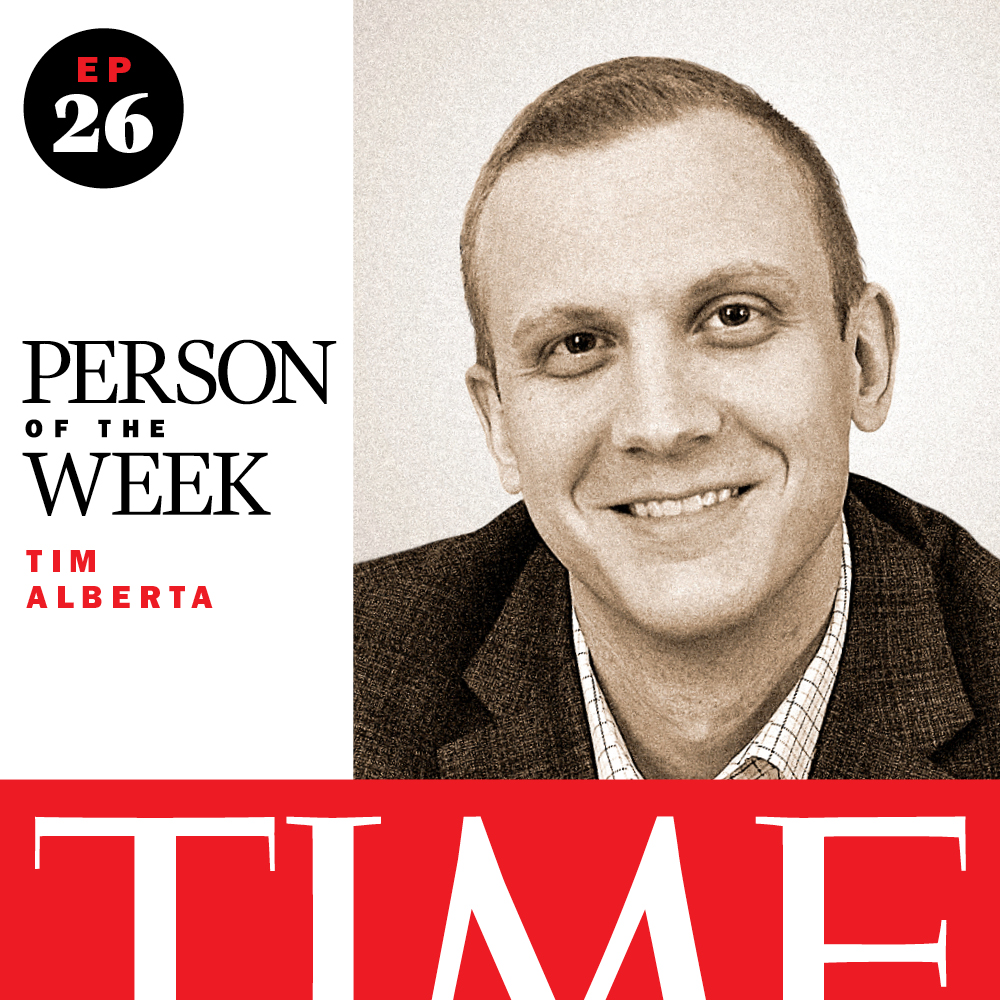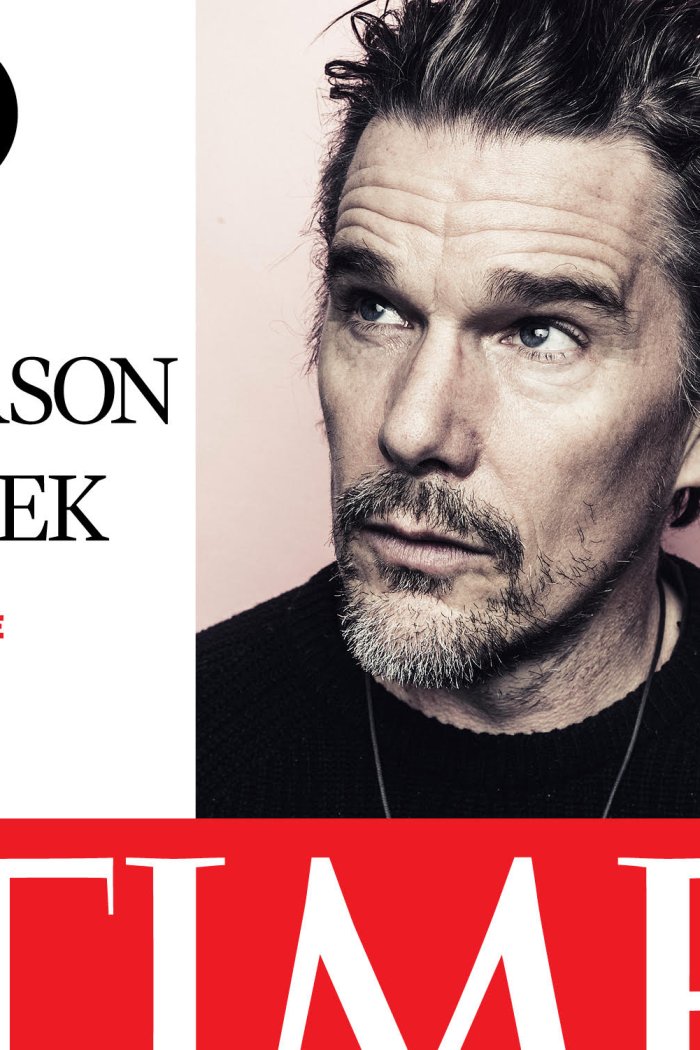Tim Alberta has covered American politics for years—writing everywhere from the Wall Street Journal to Politico to The Atlantic. Along the way, he’s developed a special focus: translating the American right to the rest of the country. His 2019 bestseller, American Carnage, traced the turmoil within the Republican party that led to the rise of President Trump. And his new book: The Kingdom the Power and the Glory, explores American evangelical christianity in the age of political extremism.
Ever since Donald Trump rose to power in 2016, many Americans have been asking the same burning questions: why do evangelical Christians—who’ve long defended family values—embrace Trump, a serial liar who’s been repeatedly accused of sexual assault and other un-Christian behavior? How has Trumpism transformed evangelical Christianity? And how has that transformation shaped American democracy?
Lucky for us, Tim Alberta has some answers. This is all especially personal for Alberta since he’s an evangelical Christian himself. And as both a believer and an astute political observer, he can help us understand one of the most bewildering forces shaping the 2024 election.
Tune in every Thursday, and join us as we continue to explore the minds that shape our world. You can listen to the full episode in the player above, but here are a handful of excerpts from our conversation, which have been condensed and edited for clarity.
On why Trump captured the evangelical imagination:
When people become fearful, when people become anxious and insecure, I think they naturally turn to someone who they see as capable of protecting them. Or at the very least, someone who’s willing to fight back on their behalf.
Now let me just say, like, theologically, there’s really a choice for Christians to make throughout the ages when it comes to feeling threatened, feeling endangered. You can reach for the sword or you can reach for the cross. Now when you reach for the sword that is often in terms of seeking political, cultural, social power, military power, the power of the state to protect you and to punish your enemies and to sort of subjugate those who would attempt to subjugate you.
And I think what I’m trying to get at is that many American evangelicals have become so frightened, have become so panicked, have become so fearful, that they have reached for the sword. And the sword is Donald Trump.
And at some level Trump promises them a protection and a safety that justifies that transaction in their minds.
On why so many white evangelicals feel so persecuted:
I think a lot of people struggle to understand how could it be that Christians, who are still a majority in society, white Christians who still have their hands on the levers of so many of the institutions in this country, how could they feel persecuted? How could they feel under siege?
I think a lot of it is the historical predictions and almost prophesying of this idea that you will one day be persecuted for your faith in this country. I mean, if you grew up in the evangelical movement, or in the fundamentalist movement a little bit farther back, that was like really bedrock to the conversations that you had. If you listened to Focus on the Family and James Dobson, or if you were a part of the Moral Majority, with Jerry Falwell Sr., any of these affiliated organizations and their movements and all of the education curriculum that they disseminated, that was really a core message: that Christianity was under threat in this country. Especially if you think about the 1970s.
You know, Roe v. Wade, you go back even further to the Supreme Court ruling banning prayer in public schools. Pornography becomes ubiquitous, the drug culture is out of control, divorce rates are skyrocketing. And suddenly, you have all of these evangelical Christians looking around saying, ‘Yeah, they are coming for us. Our way of life is soon to be pushed to the margins…We are being ostracized. We are being marginalized.’
But the question for me comes back to this idea of: OK, let’s pretend that you really are being persecuted. Right? Which in the American context, you’re not, right? We know what persecution looks like. But let’s even pretend that that’s what’s happening here. The question again becomes, how do you respond to it?
Do you reach for the cross or do you reach for the sword? And again and again and again, what we see is that these people are reaching for the sword.
They are not following the biblical blueprint laid out in the New Testament. I mean, Jesus’s disciples were rounded up and killed by the state en masse. And how did they respond to it? They responded to it by praying for the people who were killing them. So, there’s a clear biblical teaching about how we are supposed to respond to the culture when it turns against us. And we, in the American context, are doing the exact opposite.
On why conspiracy theories are so rampant in white evangelical communities:
We’ve seen pretty consistently for the last few years, the people time and time and time again, who are the most likely to believe that the vaccines are dangerous, that QAnon is real and that the election was stolen and that violence is justified… it comes back to white evangelicals
Time and again. In my own reporting experiences, you run into a lot of this. I mean, it’s hard to quantify, but it’s not a small minority. The ‘why’ of it is fascinating and frustrating to me because I think at some level, if I’m being honest, there is something about a belief in a higher power that sort of opens the window wider for someone to embrace something that may not be logical or reason based.
There are a lot of very brilliant people who are not the caricature of this rube who stumbled into believing in Jesus and therefore that makes them gullible. I don’t want to insult the intelligence of Christians in that way. But I do think that there is something about that idea of, by believing in a higher power, whether it’s Jesus, whether it’s any religious tradition, are you inherently a little bit more susceptible to suspending logic, suspending inquiry, suspending scrutiny, and buying into something that might otherwise not pass the smell test? I think there’s probably something to that.
But I also think that there’s something in the American evangelical psyche that is particularly vulnerable here.
And it goes back to this idea of: they’re out to get us, we’re under threat and. And I think once you start to really buy into this idea that there is a deep state, or that the government is being weaponized and that there are organized forces out there coming for you and coming for your faith, then yeah, I think it makes sense that you logically start to grab for things that help you make sense of it. So the same people that want to banish Christianity from public life and who want to shut down your churches, they also want to control you with a vaccine. And you can see how that progression starts to kind of roll downhill.
- Cybersecurity Experts Are Sounding the Alarm on DOGE
- Meet the 2025 Women of the Year
- The Harsh Truth About Disability Inclusion
- Why Do More Young Adults Have Cancer?
- Colman Domingo Leads With Radical Love
- How to Get Better at Doing Things Alone
- Michelle Zauner Stares Down the Darkness


